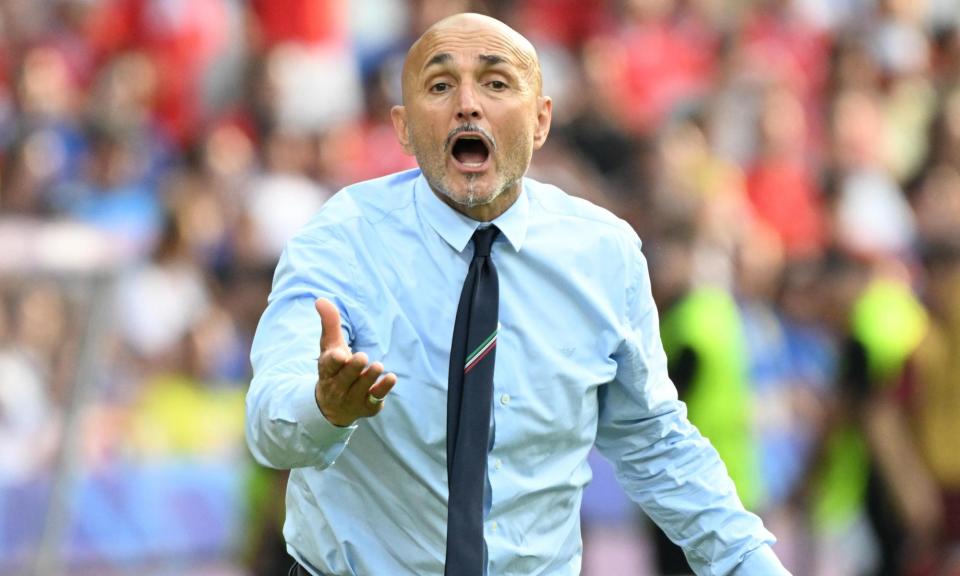Luciano Spalletti finds many reasons for Italy’s defeat at hands of Switzerland

“I have the responsibility for what’s happened,” Luciano Spalletti announced after Italy’s European Championship exit. A commendable sentiment, albeit one slightly occluded by the rest of his speech, in which he blamed, in order: the heat, his players’ efforts in training, his lack of preparation time, the lack of physicality in footballers being produced by the Italian system, injuries, the ease of Inter’s Serie A title win, the weight of expectation and a newspaper that gave one of his players a 4/10 rating.
It really was the most extraordinary outpouring of vibes and analysis from the mercurial national coach, and in all fairness to Spalletti most of his observations – which he admitted could be seen as “clutching at straws and looking for excuses” – were not wide of the mark. “The responsibility is always mine,” he reiterated. “There’s no blame to everyone. I want to stress this. I want to thank the players for having brought me here.”
Related: Switzerland outclass Italy to reach last eight and end the torment for Spalletti
But he also pointed to the fact that he had only had 10 games to prepare for this tournament, as well as the fact that Inter secured the Serie A title with five games to spare. “I need to get to know my team a bit better,” he said. “We also had a number of players who suffered injuries, players I was counting on, and you saw that in terms of intensity we were under par. Inter won Serie A, and they are a serious, professional club. But perhaps unconsciously, you’re not as applied once you won the league so early.
“The future of the Italian national team comes down to different choices. We need more physicality. When you think you can play with quality, but then you can’t sustain that intensity over 90 minutes, you need to try and mix things up. In one-on-one duels, we struggled. If the ball is pinged 80 yards, you need to be quick to cover those 80 yards. It’s not about technique in that case.”
After being criticised for picking an unchanged team for the defeat to Spain, Spalletti made six changes here, a decision that backfired badly. “Recently we have tried to train players in a certain way, put on sessions that have that intensity, with quick recovery runs, because these methods can allow you to improve,” he said. “In terms of that, I wasn’t overly happy with our responses on the training ground. But these are the players I’ve picked, and therefore it’s on my head.”
For all this, Spalletti sounded like a man with the appetite to fix things. “I’ve got no fear,” he said. “I have come under pressure right from day one. The previous game, you immediately hear comments, a number of players were given 4/10, people were saying it was scandalous, and then I have to react, because I’m not just going to stand by and listen to that.
“And when I’m told that we produced a scandalous performance against Croatia, I’ll say no. Today we were under par. Against Spain, under par, But not against Croatia. We made it through a tough group, but we didn’t see a team that is defined: in terms of fundamentals, in terms of the foundations that we can build upon.”
The victorious Switzerland coach, Murat Yakin, toasted a near-perfect performance. “The team deserved this,” he said. “They produced an excellent display of football, and right from the word go we showed we wanted to take charge of the game, to dominate proceedings. Our opponents barely had a shot at goal. We still need to keep our feet on the ground. But I will always remember tonight.”

